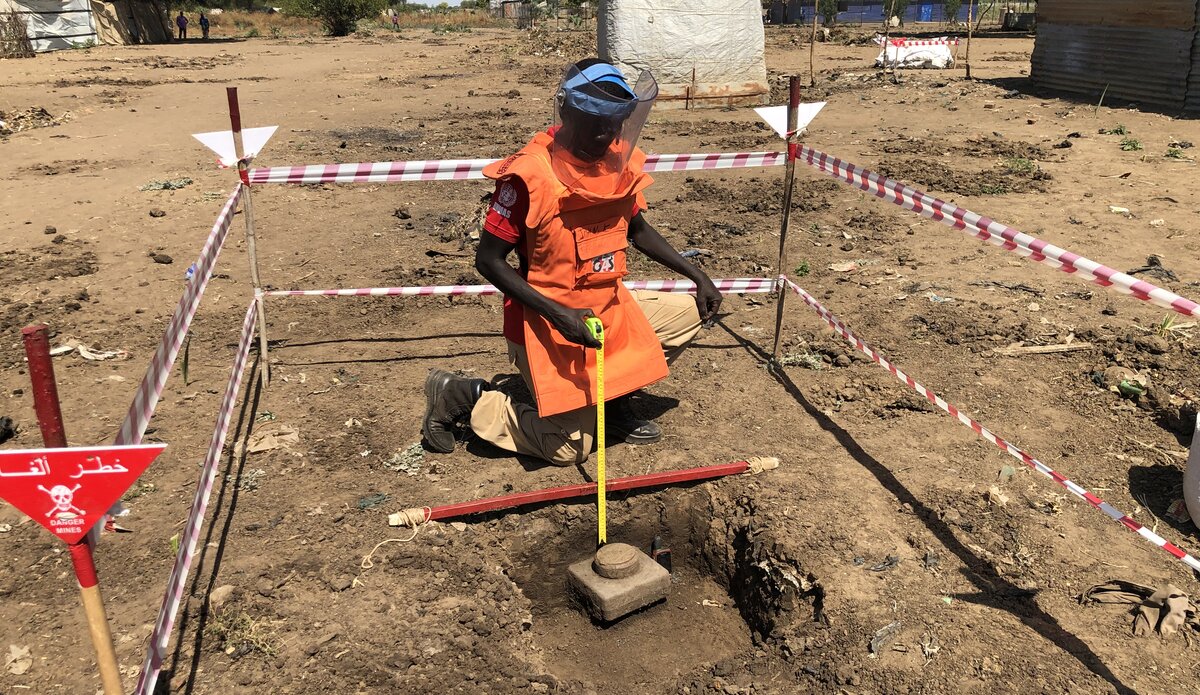After a conflict, after the guns fall silent, the legacy of war often remains hidden beneath the soil, lying on roadsides and scattered across farmland. Landmines and explosive remnants of war are left behind, threatening communities that are already reeling from the effects of violence.
This is the reality for many communities in South Sudan, a country that has faced decades of armed conflict and humanitarian crises. A farmer preparing their land, a child walking to school, a cattle herder guiding livestock, or a woman collecting firewood – all are put at risk by these hidden threats. So, too, are the humanitarians trying to reach communities that are in dire need of food, water, and medical assistance.
Since 2004, the UN Mine Action Service (UNMAS), an integral part of the UN peacekeeping mission in South Sudan, has been working with South Sudan’s National Mine Action Authority and other partners to remove these hidden killers. Important progress has been made, but large areas remain contaminated, and renewed fighting risks reversing the progress made in clearing land.
Read the story from UN Mine Action Service’s South Sudan team on the UN Peacekeeping website.

